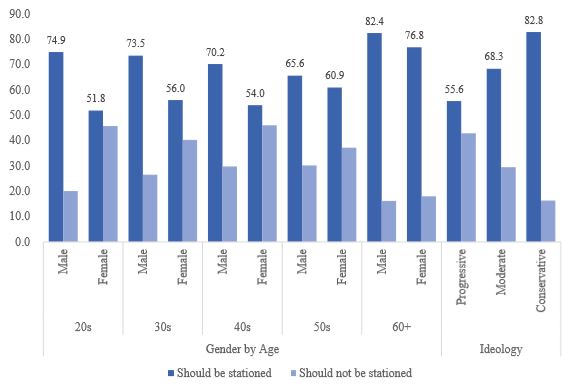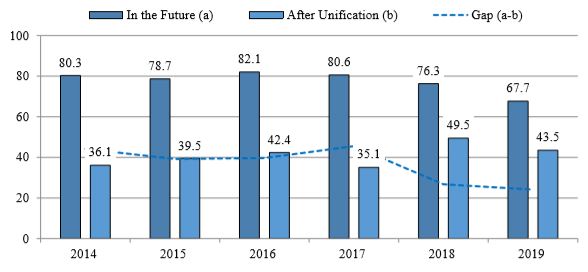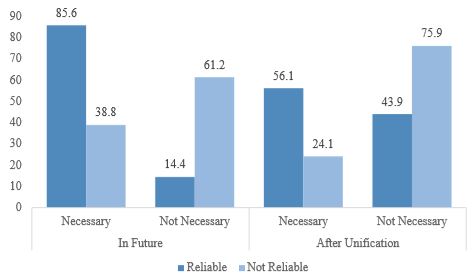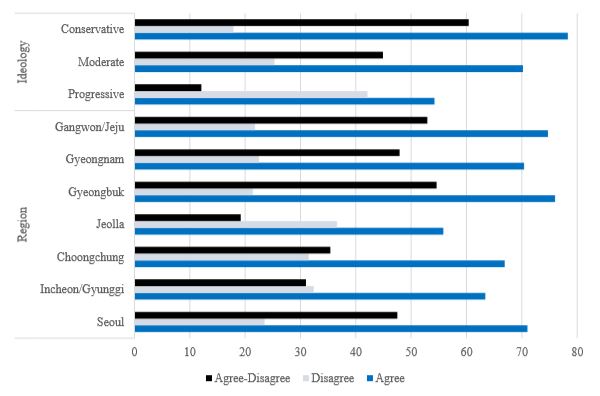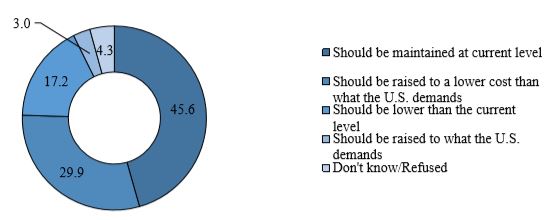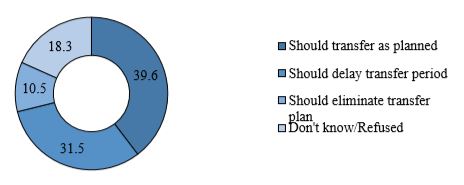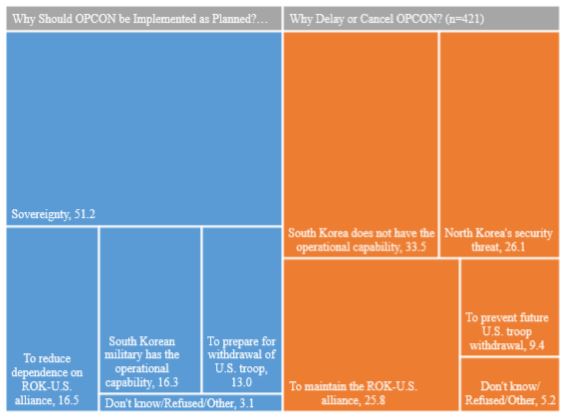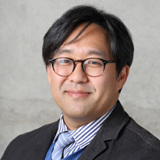Executive Summary
In a matter of days, Donald J. Trump and Kim Jong-un will meet to build upon progress made in the June 2018 Singapore Declaration, in which both sides pledged to normalize relations, achieve peace, and work toward “complete denuclearization.” The meeting follows growing momentum in inter-Korean relations, including three summit meetings between Moon Jae-in and Kim and initial steps designed to transform the Demilitarized Zone (DMZ) into a peace zone. Meanwhile, the United States and South Korea have finally reached a deal in a contentious negotiation over burden sharing, concluding a one-year agreement in which South Korea pledged to increase its contribution by 8.2 percent over the prior year’s levels.
Given the whirlwind of summitry and dramatic shifts in temperature affecting South Korean security, the Asan Institute for Policy Studies and Council on Foreign Relations commissioned a survey of South Korean attitudes toward the U.S.-ROK alliance and the U.S. Forces Korea (USFK) presence on the Korean Peninsula to benchmark attitudes toward the security alliance and document new trends in the relationship.
Major takeaways from the survey include the following:
● Despite dramatic steps toward reduction of conventional military tensions between the two Koreas around the Demilitarized Zone, there is still strong support across every cohort within Korean society for USFK as a reliable partner in assuring South Korea’s security. A majority of South Koreans believe that current USFK levels should be maintained for the time being.
● Two-thirds of South Koreans surveyed continue to believe that U.S. extended deterrence commitments are credible, and three out of five believe the continued USFK presence on the peninsula does not threaten peace negotiations with North Korea.
● South Korean support for continued USFK presence in the future has dropped by about ten percent since the peak of military tensions in 2017. Though a majority of Koreans still believe USFK will be necessary for South Korea’s security in the future, the level of support for USFK decreases in the event of Korean unification.
● Prior to the conclusion of the cost sharing agreement, 45 percent of Koreans supported maintaining Korean contributions to USFK at current levels, while 28 percent believed contributions should increase and 17 percent believed contributions should decrease.
● A plurality of Koreans (forty percent) support implementation of Moon administration plans for Korea to assume the operational control of forces in wartime, while thirty percent oppose proceeding with the transfer. Those who support the transfer believe it will enhance Korea’s autonomy, while those opposing the transfer are worried that South Korea does not yet have the capability to exercise operational control, or have expressed concern over either the future of the U.S.-ROK alliance or the magnitude of the North Korean threat.
Introduction
The first inter-Korean summit in June of 2000 generated unprecedented challenges for South Korean perceptions of the role, reliability, and durability of USFK. The possibility that inter-Korean reconciliation might reduce tensions and potentially even pave the way for an eventual Korean unification raised questions about the continued need for a U.S. presence on the Korean Peninsula and kindled debate within South Korea over whether USFK might become an obstacle to an inter-Korean peace process. South Korean public debate over the role of USFK intensified with the political transition in the United States from the Clinton to the Bush administration, the impact of 9/11 on American foreign policy, and President Bush’s inclusion of North Korea as a member of the “axis of evil” alongside Iran and Iraq in his 2002 State of the Union address.
The level of South Korean support for the U.S. military presence in South Korea provides a useful proxy for understanding attitudes toward South Korean foreign policy and inter-Korean relations, in addition to serving as an important barometer of support for the U.S.-ROK alliance. A clear understanding of the level of South Korean public support for the alliance has become even more important given uncertainties regarding the level of leadership commitment to the alliance under the Trump and Moon administrations.
The Asan Institute and Council on Foreign Relations conducted a joint survey of Korean attitudes in January 2019 to assess views on these questions at a time of anticipation for a second U.S.-North Korea summit, dramatic initial steps toward inter-Korean tension-reduction, and an impasse between the United States and South Korea over the level of South Korean financial support for USFK.
The findings show that a majority of Koreans across every category continue to view USFK as reliable, and that favorability of USFK is almost as high as that of the United States and higher than that of President Trump. Perhaps most notably, three out of five Koreans surveyed believe the presence of USFK does not threaten the inter-Korean peace process, and two out of three Koreans surveyed agree that the U.S. nuclear umbrella effectively deters North Korean nuclear provocations (See Figure 7).
Support for USFK
Survey results show that over 62.5 percent of South Koreans view USFK as trustworthy (See Figure 1). Conservatives assert the highest levels of confidence in USFK, with over 81 percent responding that USFK is trustworthy. Though progressives and moderates expressed less certainty, majorities of both groups (56 and 57 percent, respectively) view USFK as reliable. By age cohort, 68 percent of Koreans 60-and-over view USFK as reliable, while Koreans in their 40s are least confident in USFK, with only 56 percent responding that USFK is reliable. There is also a notable difference in opinion along gender lines, with male respondents (72.5 percent) viewing USFK more favorably than female respondents (52.6 percent). The gender gap is most pronounced among respondents younger than sixty, with a 34.62 percentage point difference in perception about the reliability of USFK between men (72.47 percent) and women (47.85 percent). These findings are consistent with previous research on South Korean attitudes toward North Korea and unification, which showed that younger (20s and 30s) and older (60-and-over) generations share a common view that North Korea is a serious national security threat and should not be given economic aid.1 The data suggests that, on security matters, younger and older respondents tend to hold more conservative views than individuals in other age groups. Among younger respondents, men also tend to be more conservative than women.
Figure 1. Trust in USFK (%)
On the issue of unification, past study showed that the younger respondents were more averse to the notion of a unified Korean identity, or “one Korea,” than any other group.2
Figure 2. Favorability of USFK (0 = Least Favorable, 10 = Most Favorable)
The above findings are consistent with the average favorability rating (5.6) of USFK (See Figure 2). This is comparable to the favorability of the United States (5.75) but higher than that of Trump (4.26). Here too, there is a noticeable difference along gender and ideological lines. Conservatives hold a more favorable view of USFK (6.98) than moderates (5.36) or progressives (4.85). There is also a noticeable difference in opinion between men (6.16) and women (5.07).
Figure 3. Support for Presence of USFK in the Future (%)
Survey data reveals a slight dip in support for the presence of U.S. forces on the Korean Peninsula from an average of over three-quarters of Koreans between 2013–2017 to 67.7 percent in 2019 (See Figure 3). Those who believe that U.S. forces should not be stationed in Korea in the future also rose from 19.4 percent in 2017 to 29.8 percent in 2019, a shift of about 10 percentage point. Support for USFK presence in the future is reflected across the ideological spectrum, but more conservatives (83 percent) support a future presence than progressives (56 percent) or moderates (68 percent). There is a noticeable difference in opinion across age and gender, with almost 80 percent of the 60-and-over group representing the strongest support for a future USFK presence. Furthermore, 73 percent of Korean men support a continued USFK presence compared to only 62 percent of women. The difference in perception across gender is especially pronounced among respondents under 50.
Figure 4. Preference for Level of USFK Presence in the Future (%)
Despite the apparent easing of tensions, a majority of Koreans support maintaining the current level of USFK forces into the future, while 26.7 percent desire a reduction in the presence and 7.8 percent support an increased presence in the future (See Figure 4). Once again, differences in opinion are most pronounced along ideological lines, with conservatives most supportive of continued USFK presence into the future. Preferences were generally consistent among men and women, but respondents under the age of thirty and over the age of fifty were more supportive of expanding or maintaining the current level of USFK presence on the Korean Peninsula.
Figure 5. Support for USFK Presence (% of “Continue to be Stationed”)
Support for a sustained USFK presence in Korea after unification dropped by about 6 points from a previous high of 49.5 percent in 2018 to 43.5 percent in 2019 (See Figure 5). The gap between Korean support for USFK presence in the future versus in the specific context of unification is smaller than in past years, which may reflect the current atmosphere of reduced tension on the Korean Peninsula. These preferences may also reveal a gradual convergence in public attitudes about USFK presence “in the future” and “after unification.”
Figure 6. Relationship Between Trust in USFK and Desire for USFK Presence “in the Future” and “After Reunification” (%)
Finally, trends in South Korean attitudes toward a continued USFK presence “in the future” and “after unification” are likely driven by the public’s overall trust in USFK. As shown in Figure 6, a high level of trust is associated with a greater sense of need for USFK, while a lower level of trust is associated with a decreased sense of need for USFK.
When asked whether the presence of USFK threatens the peace negotiation process, three out of five South Koreans answered in the negative (See Figure 7). There was a noticeable difference across ideology, gender, and age. On average, 56 percent of moderates and progressives did not agree that USFK threatens the peace process. This is 20 points lower than the percentage of conservatives who believe USFK does not threaten the peace process.
Figure 7. Perceptions of USFK Presence and the U.S. Nuclear Umbrella (%)
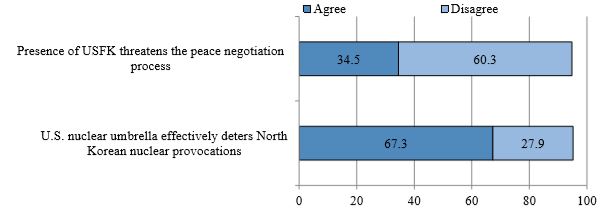
Figure 8. U.S. Nuclear Umbrella Effectively Deters North Korean Nuclear Provocations (%)
The gap in perception between men and women is isolated to the lower age categories, with the difference in opinion most pronounced among respondents under the age of fifty. On average, 68.66 percent of men under 50 disagree with the idea that USFK threatens the peace process, compared to 53.27 percent of women under 50. The same figure is 67.1 percent for men 60 years-or-older and 57.2 percent for women in the same age category. In comparison, only about 55 percent of men and women in their 50s believe that the USFK presence threatens the peace process.
South Korean views regarding the effectiveness of the U.S. extended deterrence commitment remain positive, with two out of three Koreans surveyed agreeing that the U.S. nuclear umbrella effectively deters North Korean nuclear provocations (See Figure 7). While a majority of progressives (54.2 percent) agree with this claim, moderates (70.2 percent) and conservatives (78.3 percent) expressed much more confidence in the deterrent (See Figure 8). There was also a noticeable difference across regions, with 72.2 percent of respondents from Seoul, Gyeong-sang, and Gangwon provinces articulating confidence in the deterrent and ten percent fewer respondents from other regions (62.5 percent) agreeing that the nuclear umbrella effectively deters North Korea.
Burden Sharing and USFK
Regarding burden sharing, 45 percent of Koreans support maintaining Korean contributions at the 2014-2018 level, while 30 percent believe the contribution should be raised and 17 percent believe it should be lowered (Figure 9). There is little noticeable difference across ideology, age, or gender. The comparatively low level of approval for increasing contributions is especially significant given the recent agreement reached by the South Korean and U.S. governments stipulating that South Korea’s contribution will increase by 8 percent and be renegotiated after one year.
Figure 9. Burden Sharing in the Special Measures Agreement (SMA) (%)
With respect to public perceptions regarding South Korea’s overall defense spending, 46 percent of respondents believe the government should maintain current levels of spending, while 33 percent believe the government should raise the defense budget and only 16 percent believe the government should reduce defense spending. It is notable that there is an even split between men who support maintaining the current level and men who support increasing the defense budget, whereas women are more inclined to favor freezing the budget. There is no noticeable difference in opinion regarding burden-sharing across ideological lines.
Revised Wartime Operational Control Arrangements
During the 50th ROK-U.S. Security Consultative Meeting (SCM) that took place in Washington, DC in October 2018, South Korea and the United States agreed to terms for the transfer of wartime operational control (OPCON). The joint statement affirmed that USFK would remain on the Korean Peninsula post-transition and that the Combined Forces Command and its subordinate combined components commands would be reorganized but remain intact. Though some conservative elements in South Korea have expressed concerns about a potential weakening of the alliance as a result of the OPCON transfer, the progressive party has long asserted that the transition is necessary to fully restore South Korea’s sovereignty.
Survey results suggest that the South Korean public is split on this issue. Two out of five South Koreans believe the OPCON transfer should proceed as planned, while about 30 percent believe it should be delayed and 18 percent believe the plan should be scrapped altogether (See Figure 10).
Figure 10. OPCON Transfer (%)
Over half of those who support the transition identify sovereignty as the reason the transfer should be implemented as planned, while 16 percent support the transfer to reduce dependence on the U.S.-ROK alliance. An additional 16 percent believe the ROK military has the necessary capabilities to manage wartime operational control, and 13 percent believe South Korea should retain OPCON in case the United States decides to withdraw troops from South Korea. Among those who want to delay or eliminate the transfer, one-third argues that South Korea lacks the required military capability, a quarter notes concern about the North Korean security threat, and a quarter wants to delay to maintain the U.S.-ROK alliance. Nearly one in ten state that the OPCON transfer should not proceed in order to preclude the possibility of U.S. troop withdrawal from the Korean Peninsula.
Conclusion
South Korean support for the U.S.-ROK alliance remains relatively strong for the time being. This is particularly striking in contrast to the drop in South Korean support for USFK that occurred in the early 2000s during a period of inter-Korean reconciliation, strained U.S.-ROK relations due to differing opinions on policy toward North Korea, and tensions between USFK and local communities exacerbated by the accidental death of two Korean schoolgirls in a 2002 traffic accident involving a U.S. military vehicle. At that time, Korean public support for the U.S. presence in South Korea bottomed out in the low forty percent range and was accompanied by candlelight vigil protests against the United States across South Korea.3
This survey reveals a modest drop from historically high levels of South Korean support for USFK presence on the peninsula now and in the future. The drop, understandable due to the current atmosphere of tension reduction, has not yet undercut the overall level of support within South Korea for USFK. The current level of South Korean public support for USFK persists for a number of reasons.
First, Korean public views of tension-reduction with North Korea remain cautious, and the USFK presence provides a useful hedge that enables experimentation with the confidence and security building measures contained in the Comprehensive Military Agreement (CMA). The widespread Korean perception that the U.S. force presence does not impede the peacebuilding process supports this view. Moreover, the U.S. extended deterrent continues to counter a North Korean nuclear advantage that, in the absence of U.S. commitments to South Korean defense and conventional force drawdowns, might leave South Korea vulnerable to North Korean extortion.
Second, U.S. efforts to consolidate bases that were previously scattered across South Korea have removed a major irritant in South Korean daily life that became more severe as civilian populations grew more concentrated around U.S. military bases. The consolidation of the USFK presence with the 2018 opening of an expanded Camp Humphreys marks the culmination of a Land Partnership Plan that resulted in the closing of almost forty U.S. military bases around South Korea over the past two decades.
Third, the relationship between Trump and Moon has thus far remained more positive than the relationship between progressive South Korean presidents and George W. Bush. Trump’s outreach to Kim Jong-un and his abandonment of the rhetoric of “fire and fury” has bolstered Trump’s popularity in South Korea. But his demand for a dramatic hike in South Korean financial support for USFK is at odds with the trend toward reduced inter-Korean tensions and could erode high levels of South Korean support for the U.S.-ROK alliance.
South Korean public perceptions of the U.S. force presence in South Korea suggest that the alliance continues to enjoy strong support despite reduced tensions on the peninsula. This support will likely persist for the foreseeable future, but is less certain in the event of Korean unification. For the time being, a majority of South Koreans remain confident in the U.S. extended deterrent and value the U.S. force presence as a security hedge until North Korean intentions become clear and trust is established. The findings also suggest that Korean support for USFK falls along the ideological, gender, and generational lines dividing the South Korean public. In particular, South Koreans 60-and-over and men under 40 tend to be more conservative—and thus more supportive of a continued U.S. military presence in South Korea than others.
Several policy implications arise from these findings. First, though public perception regarding USFK remains positive, the level of support could erode as a result of alliance mismanagement. For this reason, it is imperative that the U.S. president appreciates that the U.S.-ROK partnership benefits both sides due to its grounding in common values and interest in the security and stability of the Korean Peninsula and Northeast Asia. Second, the U.S.-ROK alliance should reaffirm a long-term vision that takes into account potential changes on the Korean Peninsula, including reunification. The 2009 and 2014 U.S.-ROK Joint Vision Statements between the Obama administration and conservative South Korean counterparts served this purpose. An updated document and accompanying coordination efforts to restate shared alliance objectives under the Trump and Moon administrations will sustain and reaffirm alliance objectives. Third, the planned OPCON transfer should adhere closely to the conditions agreed upon in previous discussions between South Korea and the United States. Failure to strictly follow these conditions may put the process at risk of becoming sidetracked by political convenience and fluctuations in the public mood. Finally, both the U.S. and South Korean governments must focus on strengthening public outreach regarding the USFK presence to maintain a robust alliance for the long run. Though the South Korean and U.S. governments have not experienced a repeat of the tragedy in 2002, failure by the Trump administration to maintain close relations with the South Korean public may lead to a long-term slippage of public support for the alliance and for the U.S. force presence on the Korean Peninsula.
Appendix
Survey Methodology
Sample size: 1,012 respondents over the age of 19
Margin of error: ±3.1% at the 95% confidence level
Survey method: Computer Assisted Telephone Interview (CATI) Random Digit Dialing (RDD) for mobile and landline phones
Period: January 07 ~ January 09, 2019
Organization: Research & Research
The views expressed herein do not necessarily reflect the views of the Asan Institute for Policy Studies.
- 1. Jiyoon Kim, Kildong Kim, Chungku Kang. “South Korean Youths’ Perceptions of North Korea and Unification.” Issue Brief. The Asan Institute for Policy Studies. April 20, 2018.
- 2. Ibid.
- 3. Lee Nae-young and Chung Han-wool. 2003. ““Anti-American Sentiments and ROK-U.S. Alliance [반미여론과 한미동맹]”, National Strategy [국가전략] Vol. 9 (No. 3). Survey by EAI and Joongang Ilbo, Dates: 2002.12.15~16, n=1,030.

 Facebook
Facebook Twitter
Twitter


